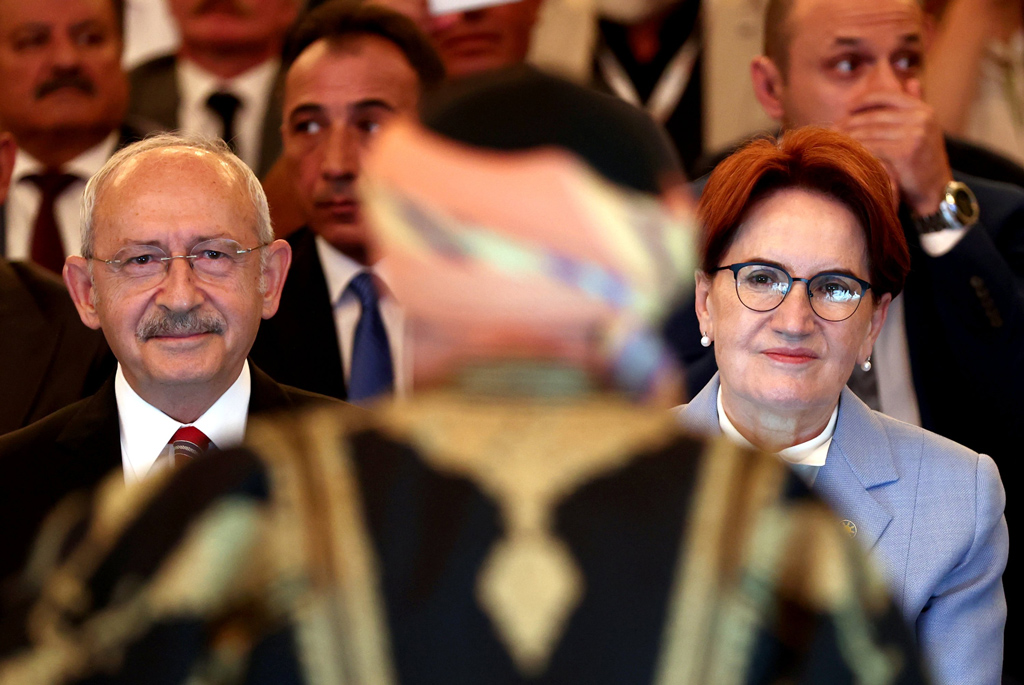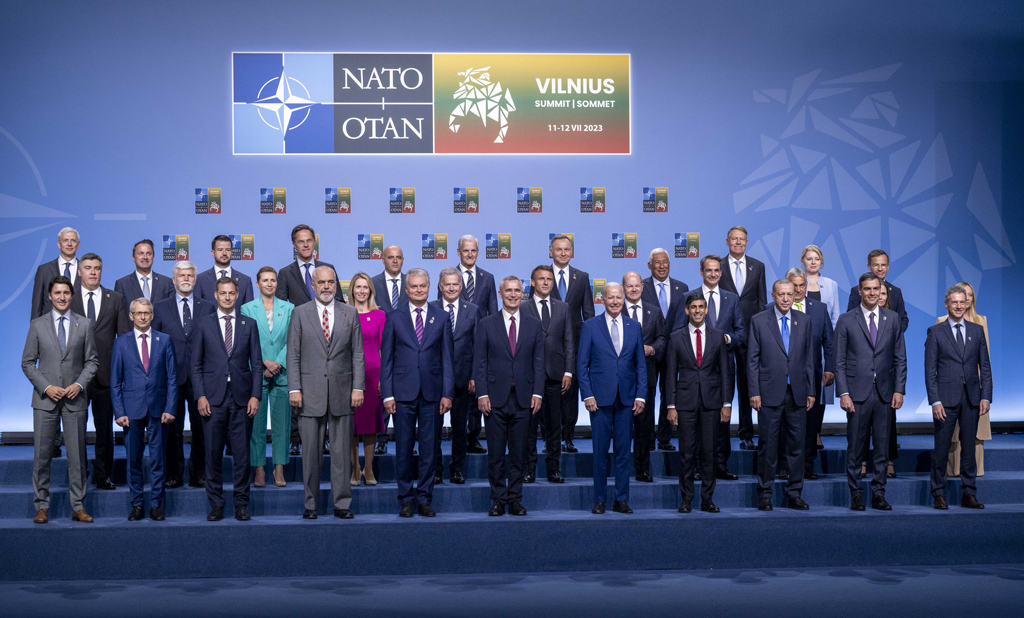In response to the main opposition Republican People's Party (CHP) chairperson, Kemal Kılıçdaroğlu, imposing himself as the opposition bloc’s joint presidential candidate, Meral Akşener, the Good Party (İP) chairperson, unleashed chaos among the opposition ranks by saying that the table for six is not a rubberstamp and adding that “we could possibly field our own candidate.”
A heated debate is now underway between the CHP and the Good Party supporters over which movement will end up dissolving the opposition bloc.
The following questions are currently on the table:
Does Akşener’s objection automatically mean that the table for six will reject Kılıçdaroğlu’s candidacy?
Would the CHP chairperson use a potential rejection to impose another candidate on his party’s base?
Would such a rejection create an opportunity for the ruling People’s Alliance?
In light of the most recent developments, the five right-leaning parties, which are part of the opposition bloc, would face two distinct forms of criticism if Kılıçdaroğlu ends up clinching the nomination. They will be accused of bandwagoning and allowing the opposition bloc to comply with the demands of the Peoples’ Democratic Party (HDP) – which is not part of the bloc.
One thing is clear: The opposition leaders have been making strongly worded statements in front of cameras ahead of their standing monthly meetings attesting to the depth of the ongoing crisis. Obviously, who will become the opposition’s presidential candidate is far more important than the opposition bloc’s agenda or the transition process or the power-sharing arrangement.
'A clash of big egos'
As a matter of fact, HDP’s rejection of Akşener and Ankara mayor Mansur Yavaş’s candidacy demonstrates that the question of endorsing a joint candidate is not limited to shaking hands with a specific candidate.
In this regard, it would not be enough to interpret Akşener’s remarks – that the bloc is not a rubberstamp— as an attempt to strengthen her hand in negotiations for the joint candidacy. Instead, that statement was about the potential performance of each of the bloc’s components in next year’s elections and, in case of an opposition victory, the future of Turkish politics.
Keeping in mind the high level of volatility between the main opposition party and the Good Party, the former could increase its share of the vote at the expense of Akşener’s movement and, possibly, various fringe parties if Kılıçdaroğlu receives the bloc’s blessing. Such a development, in turn, would make CHP more prominent and undermine the influence of the rest.
Yet the problem at hand goes beyond that, too.
It is no secret that the Good Party’s main problem is
HDP’s presence within the opposition bloc. Specifically, Akşener’s base is unhappy with HDP, which they consider an extension of the terrorist group PKK, lecturing and scrutinizing their party. In this sense, CHP’s policy of involving HDP (which is not officially part of the opposition bloc) in the process of selecting a candidate poses a serious ideological challenge for the Good Party in the eyes of the electorate.
After all, the “HDP effect” represents an unmanageable challenge for a political party that rests on a nationalist base. In other words, the HDP’s ability to collaborate with Kılıçdaroğlu to block the candidacy of the Good Party’s favorites amounts to an ideological burden that Akşener cannot shoulder.
As such, the question at hand goes beyond who gets to pick the candidate or a clash of big egos.
Türkiye's post-2023 direction
The Good Party, which remains the most popular right-wing party within the opposition bloc, objecting to Kılıçdaroğlu’s candidacy also attests to a much more significant disagreement.
If the opposition were to win the 2023 elections, what would be the center of gravity in Turkish politics? Will the country’s political arena be organized around the CHP and the HDP or the CHP and the Good Party?
What, then, would be Türkiye's post-2023 direction?
Insisting that it will play a “key role” in next year’s election and demanding “an open negotiation and direct dialogue,” the HDP keeps saying that it won’t settle for a secondary role – as opposed to the 2019 municipal elections.
That is why Kılıçdaroğlu’s candidacy, coupled with the HDP’s influence, puts the Good Party between a rock and a hard place. The movement thus loses ideological ground to the ruling People’s Alliance and allows the CHP and the Democracy and Progress Party (DEVA) to overshadow Akşener’s movement in terms of their level of activity.
In light of the above, the Good Party chairperson helped herself with her most recent statements.
At this point, no opposition party would dare dissolve the “table for six.” Yet the opposition bloc loses influence despite avoiding dissolution. Indeed, the tug of war between the CHP and the Good Party clearly shows that hardly anyone cares about the four fringe parties seated around the “table for six.” The opposition bloc’s mentors, too, urge the opposition leaders to pick a candidate before the campaign kicks off, citing the AK Party’s recovery in opinion polls.
President Recep Tayyip Erdoğan, in turn, has already kicked off his reelection campaign with the main theme of “Türkiye’s Century.” The AK Party and its leader will unveil their "vision document," which positions themselves as an inclusive and inspiring movement that alone can address the country’s pressing problems, on Oct. 28.
[Daily Sabah, October 1, 2022]









